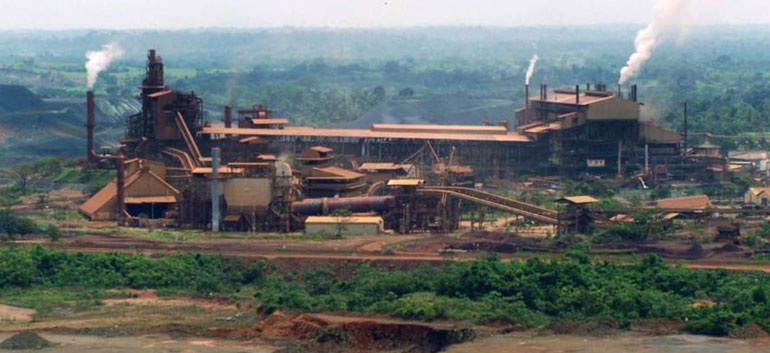Colombia’s national government, Australian miner BHP Billiton and communities living near the Cerro Matoso mine in the north of the country have signed an “act of understanding” to curb ongoing tensions over the mine.
Colombia’s Minister of Mining has been mediating discussions between the government, the community leaders and representatives from the Australian-owned BHP Billiton mining company for several weeks now, after protests temporarily shut down the Cerro Matoso mining operation in northern Colombia.
MORE: Cerro Matoso megamine temporarily closed after indigenous protests
Now an “act of understanding” looks to improve heated relations between the company and the local indigenous communities by laying an outline for social development in the region and further talks going forward.
According to the Ministry of Mining, the minister himself will serve as the principal “guaranteer” of the agreement, which promises to provide resources — from both the company and the government — for the development of education, health, housing and agricultural policies in the San Andres region.
Representatives from local indigenous communities will reportedly be included on special councils that will design and oversee the projects. Meanwhile, negotiations between the government, the company and protesters continue.
The Ministries of Health and the Environment also took part in the agreement, signing on to conduct a joint study into the effects mining activity at Cerro Matoso is having on the wellbeing of the people and natural resources of the surrounding area.
Despite various attempts to contact leaders from the nearby Zenu tribe and San Andres communities, Colombia Reports was unable to determine what implications the early agreement will have on the tone of ongoing protest campaigns, or obtain comments regarding the significance of the “act of understanding” to the indigenous communities.
A representative from the National Organization of Indigenous Communities indicated that the indigenous peoples that inhabit the area surrounding Cerro Matoso have become accustomed to receiving death threats and intimidations from armed right-wing orgnaizations historically active in the area, and have been the victim of recent threats from the Los Rastrojos neo-paramilitary group. The spokesman suggested this may explain the indigenous communities’ reticence to talk to reporters or answer phone calls from unrecognized numbers.
Judging from past declarations, however, it is unlikely the recent agreement will bring any lasting solution to the dispute.
Local opposition to the mine started on a limited basis even as developers were scouting the region some 30 years ago. Since then, anomosity has only grown, as widespread ecological and health epidemics have progressively devastated the region.
MORE: Health epidemic facing northern Colombian communities result of Cerro Matoso mine: Report
Protesters and experts agree that Cerro Matoso, the second largest nickel mine in the world, is responsible for poisoning local water and crop supplies and polluting the neighboring communities, whose high levels of airborn chemicals and dust particles are likely responsible for the elevated prevalence of cancer, asthma and the various other health problems afflicting their populations.
Previously, organizers have claimed that they will settle for nothing less than full compensation from BHP-Billiton, which has made tens of billions of dollars from mining activity over the course of 30 years at the Cerro Matoso site, and subsidized relocation from the Colombian government, which protesters say has repeatedly ignored their pleas for intervention.
According to the Ministry of Mining statement, the agreement does not address any potential legal action against the company, but a spokesman for the ministry would not comment on what actions protesters have signaled they will take going forward, or what, if anything the government plans on doing to address their problems outside of the terms of the agreement.


